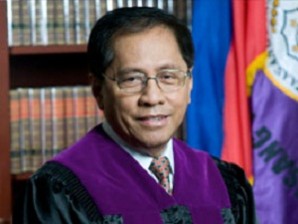MANILA, Philippines—What is the role of the Supreme Court in the questions about the Mining Act of 1995?
Justices of the Supreme Court raised this matter to anti-mining advocates during Tuesday’s oral argument.
“Who is going to decide whether there is sufficient protection in mining, the Supreme Court?” Associate Justice Roberto Abad asked.
Atty. Grizelda Mayo-Anda, counsel for one of the petitioners, said they are seeking the high court’s intervention as conscience.
But Abad said “it is not our role to serve as conscience of the government. Congress should be the conscience of government…Maybe you are addressing the problem to the wrong forum.”
Former Akbayan Representative Risa Hontiveros, in her petition, asked the high court to declare as unconstitutional Sections 80 and 81 of Republic Act 7942 or the Mining Act of 1995.
Section 80 states that the total government share in a mineral production sharing agreement (MPSA) shall be the excise tax on mineral products while Section 81 specifies the government share in Financial or Technical Assistance Agreements or FTAAs.
The petitioners which also include Quezon Representative Lorenzo “Erin” Tanada III, Bayan Muna Rep. Teddy Casino and several others said both are unconstitutional because they foster inequitable sharing of wealth.
They said Section 80 for instance limits the share of the government in MPSA to excise taxes while Section 81 confines government shares to taxes, fees and royalties instead of allowing it to have full control over the exploration, development and utilization of mineral resources.
Petitioners, during the oral argument, said they want the high court to set a guideline which Congress could use in passing a new law that would amend the Mining Act.
“Does the Supreme Court have that authority to set standards for Congress to follow,” Associate Justice Jose Perez asked adding “what will happen to the guideline if it is disregarded by the legislature?”
Lawyer Christian Monsod, another counsel for the petitioners, said the high court, as interpreter of the Constitution can interpret what should constitute equitable sharing.
“If Congress passes something that violates this (guideline) then we will go back to you (Supreme Court) to strike it down as unconstitutional,” Monsod added.
For her part, Chief Justice Maria Lourdes Sereno asked the petitioners why not wait for Congress to correct Sections 80 and 81 and what is the urgency.
Oral arguments will continue on July 16.


